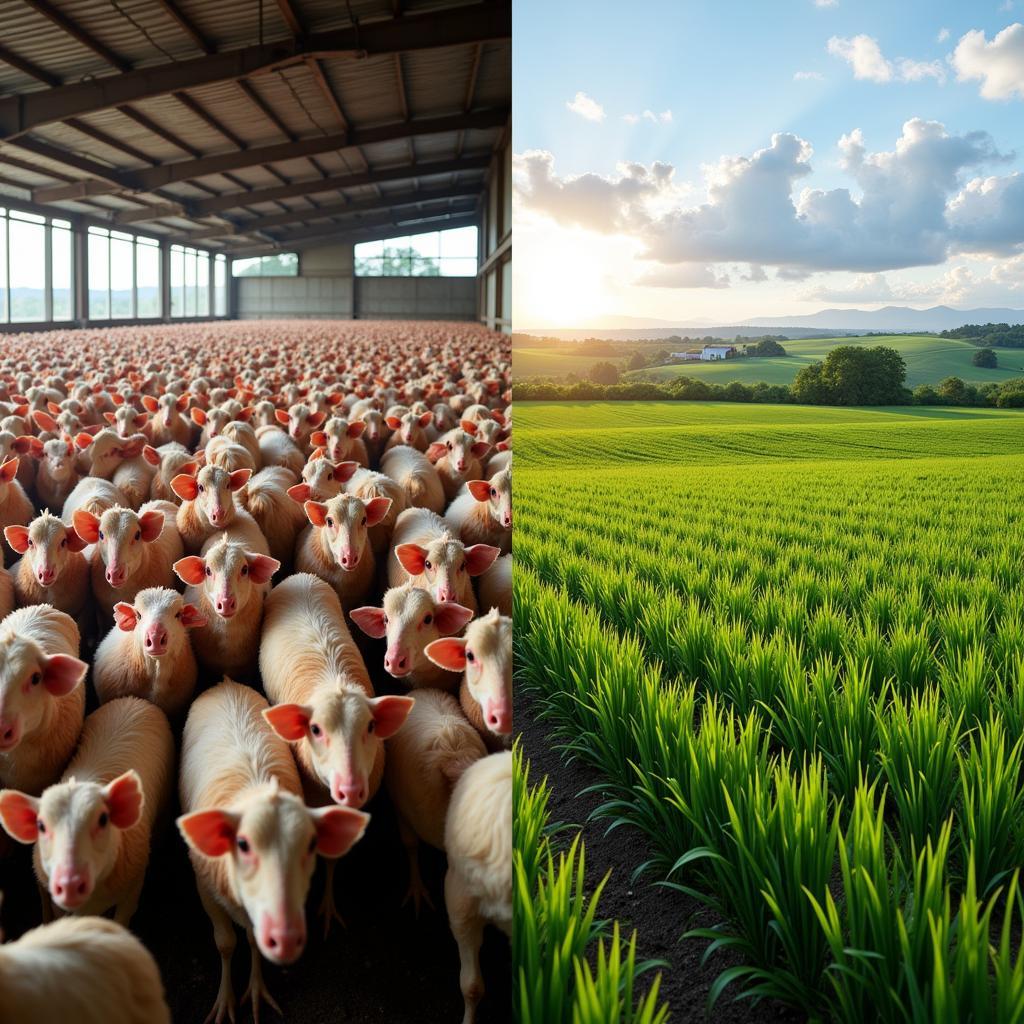The way a society chooses to answer the three fundamental economic questions – What to produce? How to produce? For whom to produce? – reveals its values, priorities, and ultimately, its very essence. These choices determine the allocation of resources, the distribution of wealth, and the overall well-being of its people.
The Weight of “What to Produce?”
Deciding “what to produce” goes beyond simply listing goods and services. It delves into the heart of a society’s aspirations. Does it prioritize essential needs like food and healthcare or focus on luxury items and technological advancements? Does it invest in education, infrastructure, and sustainable energy, or prioritize military spending and short-term gains?
 A society choosing between investing in healthcare or military
A society choosing between investing in healthcare or military
The choices made reflect a society’s understanding of progress, its commitment to its citizens’ well-being, and its vision for the future. A society that prioritizes basic needs and long-term sustainability reveals a commitment to social equity and responsible stewardship of resources.
The Significance of “How to Produce?”
The “how” of production unveils a society’s values regarding labor, technology, and the environment. Does it prioritize efficient mass production, even at the cost of environmental degradation and worker exploitation? Or does it embrace sustainable practices, fair labor standards, and ethical sourcing?
 Contrasting approaches to food production: factory farming versus sustainable agriculture
Contrasting approaches to food production: factory farming versus sustainable agriculture
A society that values human dignity and environmental responsibility will choose production methods that minimize harm and maximize well-being for all stakeholders, present and future.
“For Whom to Produce?” Unveiling the Distribution of Prosperity
Perhaps the most telling question, “for whom to produce,” exposes the very soul of a society. Does it strive for equitable distribution of wealth, ensuring everyone has access to basic necessities and opportunities? Or does it favor a system where a select few benefit disproportionately from the efforts of many?
A just and compassionate society acknowledges the inherent dignity of all its members and strives to create a system where the benefits of economic activity are shared fairly, fostering a sense of belonging and shared prosperity.
Answering the Call: Towards a More Just and Equitable World
The three economic questions are not merely academic exercises; they are moral imperatives. How a society answers them defines its character and determines the well-being of its people.
By choosing to prioritize human needs, environmental sustainability, and equitable distribution, societies can create a world where everyone has the opportunity to thrive. This requires conscious effort, thoughtful dialogue, and a commitment to justice and compassion.
The answers lie not in rigid ideologies, but in embracing our shared humanity and working together to create a future where everyone benefits from the fruits of our collective labor.